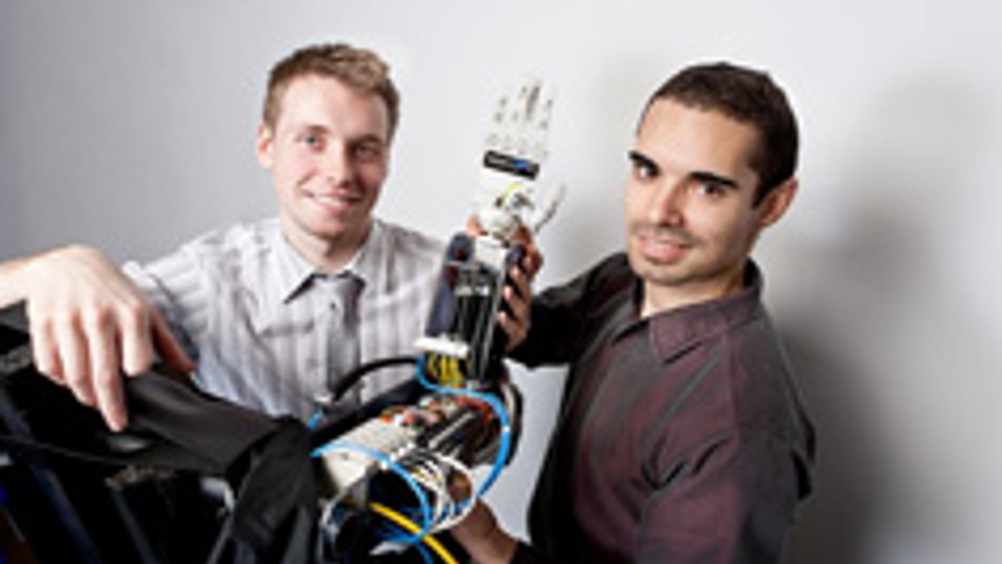Students develop prosthetic arm controlled by brain signals
Two undergraduate biomedical engineering students at Canada’s Ryerson University have developed a prosthetic arm that is controlled by brain signals.

The Artificial Muscle-Operated (AMO) arm, which was developed by third-year student Thiago Caires and second-year student Michal Prywata, is claimed to give amputees more range of movement than other prosthetic arms.
To use the arm, individuals wear a headset that senses a signal from the brain, which is wirelessly sent to a computer in the arm. The computer then compares the signal to others in a database and once the correct match is found, the appropriate control signals are sent to pneumatic ’artificial muscles’, which create the desired movement.
Simulating the expansion and contraction of real muscles, the system makes use of compressed air from a small, refillable tank in a user’s pocket.
The researchers claim that the arm will cost one-quarter of other functional prosthetic arms, depending on the complexity of the prosthesis.
They also say that while traditional prosthetics may require weeks of learning and training, the AMO arm can be mastered in minutes.
Register now to continue reading
Thanks for visiting The Engineer. You’ve now reached your monthly limit of news stories. Register for free to unlock unlimited access to all of our news coverage, as well as premium content including opinion, in-depth features and special reports.
Benefits of registering
-
In-depth insights and coverage of key emerging trends
-
Unrestricted access to special reports throughout the year
-
Daily technology news delivered straight to your inbox










Water Sector Talent Exodus Could Cripple The Sector
Maybe if things are essential for the running of a country and we want to pay a fair price we should be running these utilities on a not for profit...